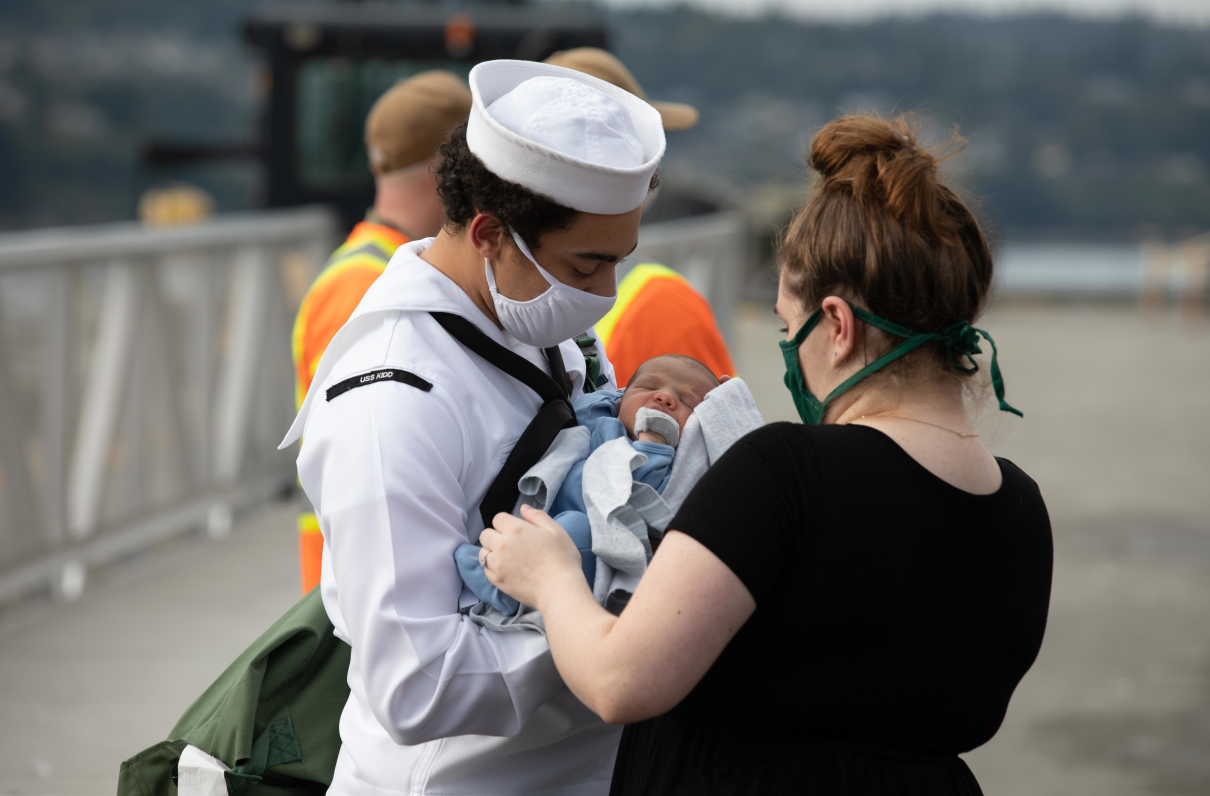The Military Coalition (TMC) and MOAA are backing proposed legislation to make life easier for new parents, and TMC sent a letter to key leaders in the House and Senate Armed Services committees in July urging their support.
Read the letter from the TMC, a consortium of organizations representing 5.5 million servicemembers, veterans, their families, and survivors, at this link. The legislation would:
- Modernize the military’s parental leave policies.
- Improve the health of parents and their children.
- Create a healthier, more welcoming environment for parents.
- Support retention of our valuable female servicemembers.
The Military Moms Matter Act (H.R. 3047) contributes to a more inclusive force and demonstrates a service-level commitment to valuing the contributions of female servicemembers. This legislation would ensure new mothers have access to physical therapy referrals for pelvic floor examinations and expand the number of military treatment facilities that offer these services. It would also expand screening for postpartum depression and anxiety and provide for expansion of a pilot program that pairs newborn check-ups with the mother’s postpartum follow-up care.
The Servicemember Parental Leave Equity Act (H.R. 3122/S. 1571) brings parental leave offered to servicemembers in line with federal benefits and options provided by many private, large employers.
This legislation would authorize up to 12 weeks of primary caregiver leave (up from six weeks under current law) for birth, adoption, or long-term placement of a foster child. Currently, secondary caregivers in the Navy and Marine Corps are allowed only 14 days of leave.
[RELATED: Here’s One Way Military Spouses Can Help Shape Programs for Their Community]
The proposed bill would authorize 12 weeks of secondary caregiver leave and provide guidance for leave to be taken in more than one increment.
Servicemembers seeking extended time off to raise a family may apply for the Career Intermission Program (CIP) which provides the ability to transfer out of the active component and into the Individual Ready Reserve for up to three years while retaining full health care coverage and base privileges.
The Servicemember Parental Leave Equity Act modifies the existing payback period for the CIP to a one-month service commitment for every month of participation in the CIP (down from two months under current law).
It includes a requirement for service secretaries to report to Congress annually on use of military parental leave by primary and secondary caregivers, the impact on readiness and retention, and number of waivers granted to the 12-month postpartum deferment policies.

